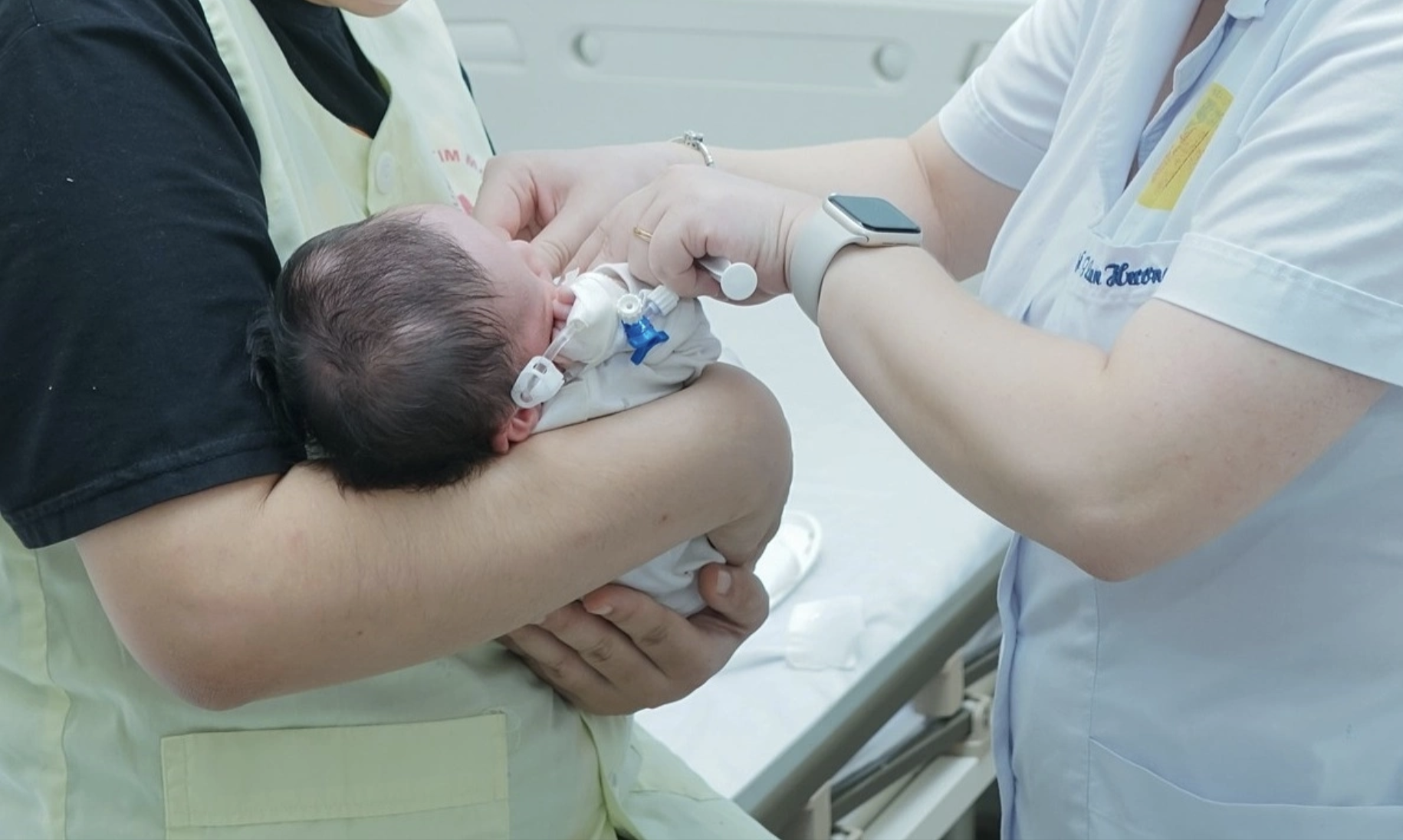Congenital heart defects are structural abnormalities of the heart, sometimes combined with irregularities in the major blood vessels leading from the heart, that occur during fetal development, explains Dr. Tran Tu Nam, head of the Cardiovascular Surgery Department at Tam Duc Heart Hospital. These changes affect the heart's function and operation, leading to various circulatory problems.
Congenital heart defects are the leading cause of death in children due to birth defects. Data shows that 8 in every 1,000 babies are born with congenital heart disease. Without timely diagnosis and treatment, the condition can severely impact a child's health into adulthood and even threaten their life.
Fetal echocardiography can detect these defects as early as the 18th week of pregnancy. However, determining the cause can be challenging due to multiple factors, including underlying issues.
Genetics plays a significant role in the formation of congenital heart defects. Children with parents or relatives who have the condition are at increased risk. Parents carrying the defective gene, even without symptoms, can still pass it on to their children.
Pregnant women using certain medications without a doctor's prescription, or consuming stimulants like alcohol, beer, or drugs, can cause congenital heart defects in their unborn child. Maternal smoking is a primary cause of congenital heart problems in children. Exposure to X-rays, radioactive substances, or living in a toxic environment can also contribute.
If a mother contracts infections like herpes, rubella, or cytomegalovirus during the first three months of pregnancy, the child's risk of congenital heart defects increases. Gestational diabetes and lupus in the mother can also lead to birth defects.
 |
An 11-day-old baby undergoes successful heart surgery. Photo: Thanh Xuan |
An 11-day-old baby undergoes successful heart surgery. Photo: Thanh Xuan
Signs of heart disease in newborns include blue lips and fingertips, shortness of breath, rapid breathing, and difficulty feeding. In older children, symptoms may be coughing, wheezing, and frequent pneumonia. Affected children may experience delayed development, pale or bluish skin when crying, and an increased risk of other conditions like Down syndrome or cleft palate. Some cases have no obvious symptoms and are only detected during health checkups.
With prompt diagnosis and appropriate treatment, children with congenital heart defects can still develop normally. Doctors determine the best treatment plan based on the child's condition. The three main treatment methods are medication, cardiac intervention (such as balloon angioplasty), and heart surgery.
Most children with congenital heart defects can participate in activities like other children. However, they should avoid strenuous sports or competitive activities, especially during treatment or recovery. Moderate exercise like swimming, cycling, walking, and badminton helps maintain their health and keeps them active.
Early detection and treatment are key to ensuring a healthy life and normal development for these children. Parents should be attentive to their child's health, seek medical attention if they notice any suspicious signs, and adhere to the prescribed treatment plan.
My Y












